Railways in India was one of the biggest colonial exploitations of the British: Shashi Tharoor
This writeup on Dr. Tharoor’s book launch is not about how the event took place, which should be obvious as being parallel to any event in which Dr. Shashi Tharoor is involved, albeit with the presence of Royalty – Shreeji Arvind Singhji, the Maharana of Mewar, the Chief Guest and his family adding panache to the proceedings. More so, we write this piece to bring out the thoughts, expressions and rich pieces of information and experiences shared by Shreeji Arvind Singhji and Dr. Shashi Tharoor shared with the audience at the Radisson Blu Ballroom at Udaipur.
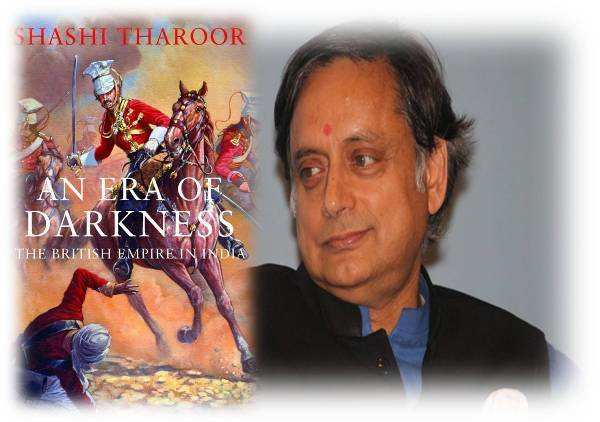
“The Sun Never Set on the British Empire – because even God did not trust the British in the Dark…”
Flamboyant Congress Member of Parliament Dr. Shashi Tharoor was in Udaipur for the launch of his 16th book, “An Era of Darkness – The British Empire in India” on 4th December 2016. Born March 9, 1956, Dr. Tharoor is an award winning author for his works, both non-fiction and fiction. A man who has spanned across several realms of experience, Dr. Tharoor has been a former diplomat, with a three decade long stint with the United Nations, where he served as a refugee worker, a peacekeeper and worked at the highest levels of administration. He worked as Under Secretary at the UN under the leadership of Dr. Kofi Annan, and is currently Chairman of the Parliamentary Standing Committee on External Affairs.
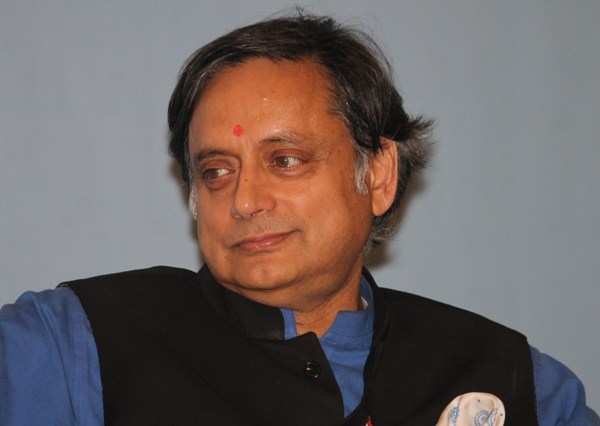
Known for his flamboyant expression of thought, Dr. Tharoor has been recognized as the pioneer in establishing social media tools as a medium of interaction in politics – something that the current party in power used to its immense success.
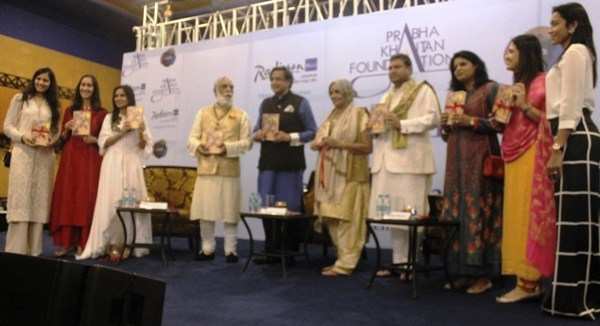
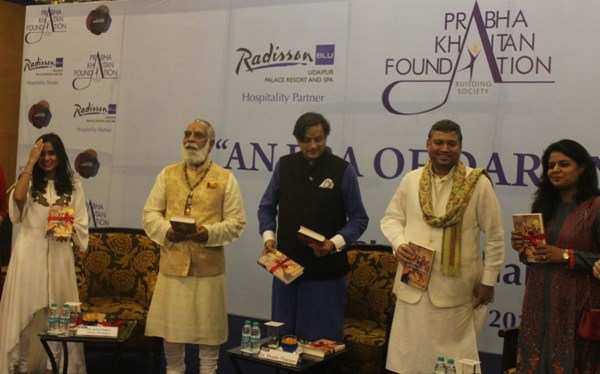
This writeup on Dr. Tharoor’s book launch is not about how the event took place, which should be obvious as being parallel to any event in which Dr. Shashi Tharoor is involved, albeit with the presence of Royalty – Shreeji Arvind Singhji, the Maharana of Mewar, the Chief Guest and his family, including Kumari Padmaja Parmar, Kumar Lakhshya Raj Singh Mewar and his wife Princess Nivritti adding panache to the proceedings. More so, we write this piece to bring out the thoughts, expressions and rich pieces of information and experiences, which Shreeji Arvind Singhji and Dr. Shashi Tharoor shared with the audience at the Radisson Blu Ballroom at Udaipur.
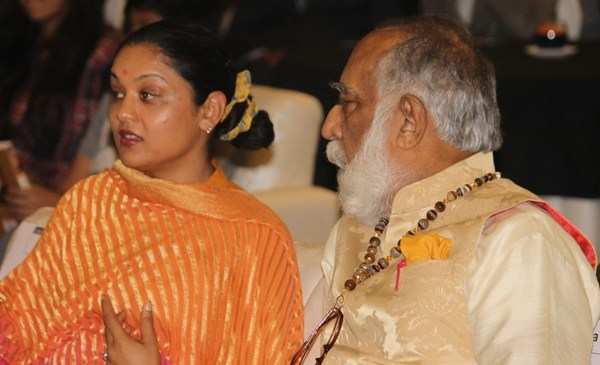
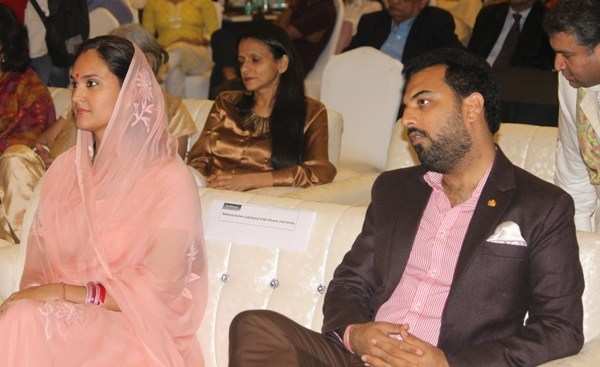
The book launch event was conducted and managed by Udaipur’s Cultural Rendezvous, under the joint auspices of Prabha Khaitan Foundation, Kolkatta. Dr. Tharoor also welcome his mother Lilly Tharoor, who celebrated her 80th birthday on the day of the book launch. Also in attendance was Dr. Tharoor’s sister, Smita Tharoor (the Amul baby).
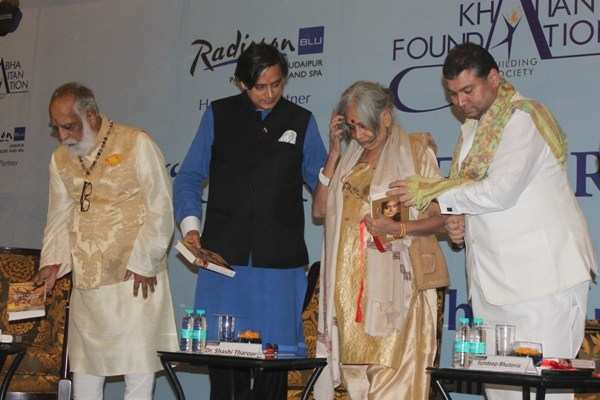
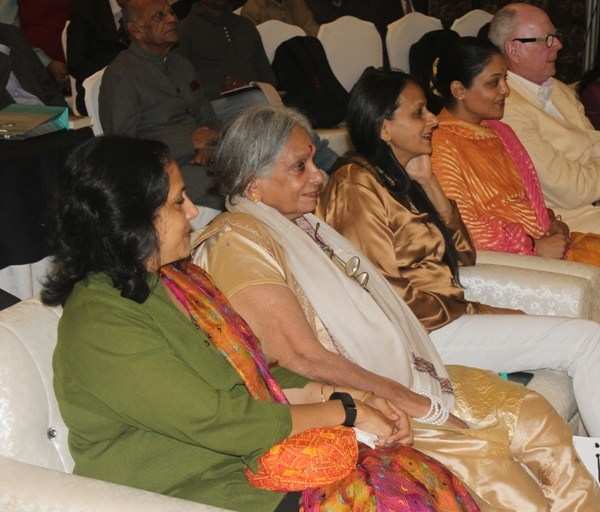
Shreeji Arvind Singhji, in his brief note to the audience, whilst welcoming Dr. Tharoor, his mother Lily Tharoor and Sundeep Bhutoria, trustee of the Prabha Khaitan Foundation spoke on the multiple aspects of the book, “An Era of Darkness” while highlighting the role and tour of duty of the Kingdom of Mewar during the reign of the British. The Maharana of Udaipur, while speaking about the interactions of the Mewar Royalty with the British rulers, picked out certain incidents which spoke about how the British rulers were more focused on plundering the Indian wealth, under the guise of philanthropy.
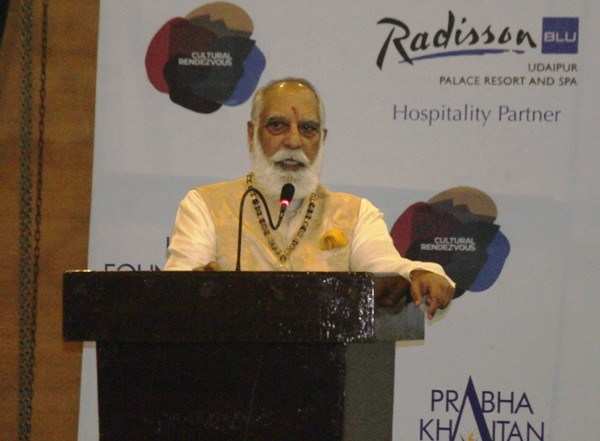
Here we would like to quote further this side of the medal – Indian Nationalist point of view. Romesh Dutt, author, lecturer and once President of the Indian National Congress, said with historic justification: “History does not record a single instance of one people ruling another in the interest of the subject nation.” So it was with the English in India. England, its trade and commerce, its defence requirements, its people came first, India and Indians came second. (We Indians – Kushwant Singh).
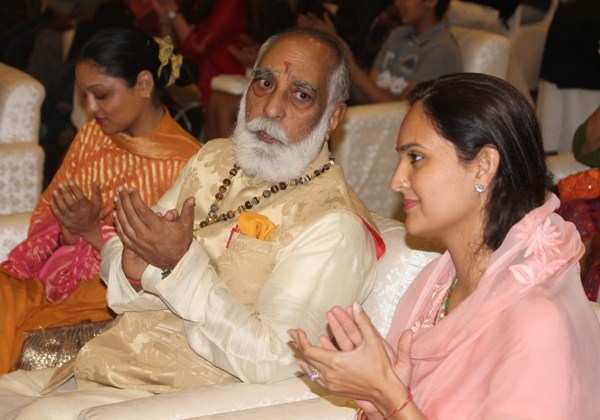
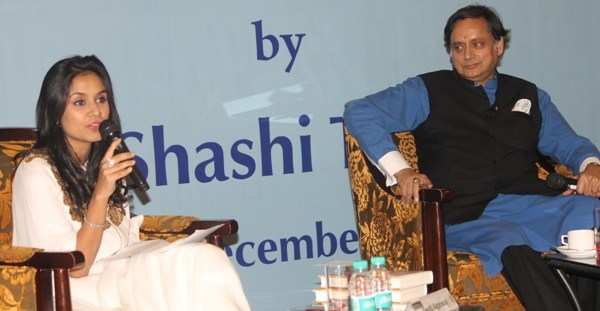
The interaction with Dr. Shashi Tharoor was begun by Swati Agarwal of Cultural Rendezvous. It was a long and interesting interaction, ending with audience Q&A; it would be impractical to bring it all on black and white on this platform.
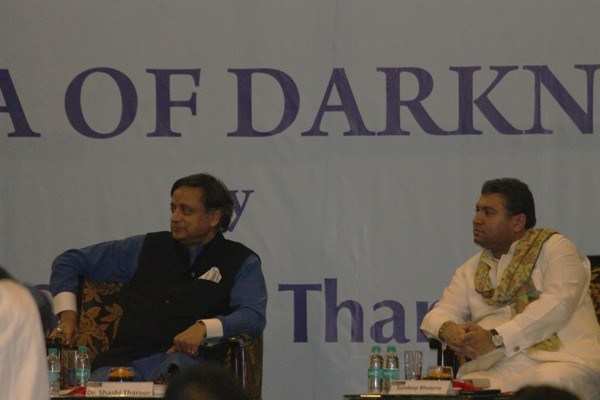
Dr. Tharoor said. “If you don’t know where you have come from, you wouldn’t know where you are heading”…highlighting the importance of reading history more from the realization perspective rather than purely academic. Those in business, academics, services, other professions as well as students, should know about the dominion of the British in India and how it hurt the country which was “Sone ki Chidiya”, before the British, who came as traders, ultimately conquered and plundered the nation.
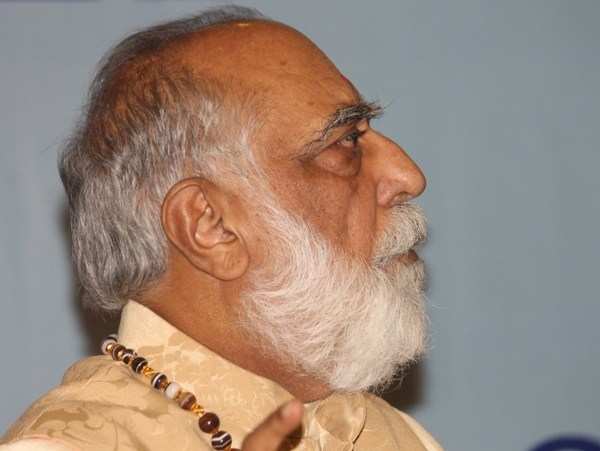
Speaking on integrating real history at school level, Dr. Tharoor made it a point to argue that the Indian student of History or otherwise, knows more about Shakespeare than about Kalidas. Hence, History needs to incorporate more about India than about others – as has been the case till now.
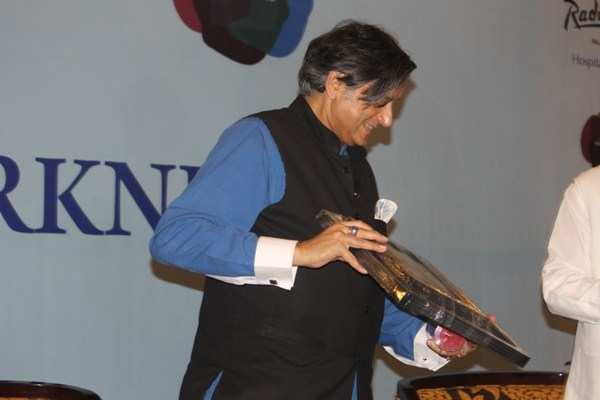
With exceptional acuity and impeccable research, Dr. Tharoor has highlighted in his book how the rule of the British spelled catastrophe for India at that time. He goes on to explain how the colonists of that time, be it the French, Portuguese or the British, exploited India and ruined its culture and manipulated its industry – textile, steel, shipping, agriculture for their benefits. Besides giving India a taste of tea, cricket and the English language, the colonists flaunted all of this for their benefits rather than that of India or of the Indians. “An Era of Darkness” will be a historical book that should go a long way in removing any misgivings and dispel all myths of the positives of British rule on India.
Dr. Tharoor, in one instance, said that people talk of the British imposing the use of English language on Indians and how this has now become the common means of communication within the country and with the outside world. He rubbished this argument saying that English was imposed on Indians for serving the means of the British colonizers. If English had not been imposed, either English or some other language would have been the common medium of internal communication, with English being the second or third language, like in other countries that were not under British.

Speaking on how England reduced India to beggary, Dr. Tharoor quoted a few facts and anectodes:
- Till the 18th Century, India was a producer nation, Indian textiles were in great demand in Europe; her agriculture produce was enough to feed her own people and to sell surplus abroad, only a little more than half of its people depended on land. English kept it this way till it wanted and then came the industrial revolution – funded for the benefit of the English, by India.
- Before the English arrived, India’s share in the global economy was 23%, when the English left, it was a mere 4%. England’s industrial revolution was funded by India.
- English destroyed India’s textile industry putting millions of weavers out of business. British machines ruined India’s agricultural economy.
- When India was exported and England the importer, John company had got special authorisation to take 130 thousand pounds in silver, gold and foreign currency to pay for Indian purchases. When the roles reversed, India became England’s debtor.
- British invested in India’s tea and coffee plantations, jute and textile mills. By their own reckoning, by 1929 British capital in India was between 573-700 million Pounds Sterling. One fourth of what Britain owned outside of their country was in India.
- Four famines in India during the British reign destroyed 15-20 million Indian lives. The callousness of the British with their treasuries ensured that the devastation was massive among all such incidents before or after their reign. The worst being the Great Bengal Famine, in which 4 million civilians died, when Churchill diverted funds and supplies to Europe instead of to Bengal.
- The English took the Hindi word “loot” in their dictionaries as well as into their habits.
- India literally paid for its own annexation.
- Violence and racism were the highlights of British colonialism in India.
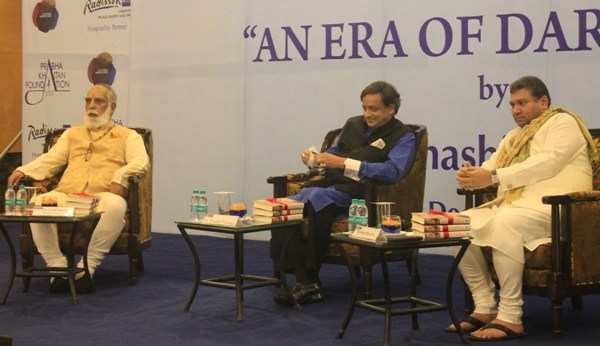
Dr. Tharoor, while answering a question put up by the audience, on why just the atrocities committed by the British were highlighted, when foreign invaders such as Babur, Humayun, Akbar, Aurangzeb killed millions of Hindus – said, that what happened during invasion was equivalent to what was happening across the world in all sorts of invasions. Invaders were not focusing on religion, but rather on their dominion to exterminate and rule.
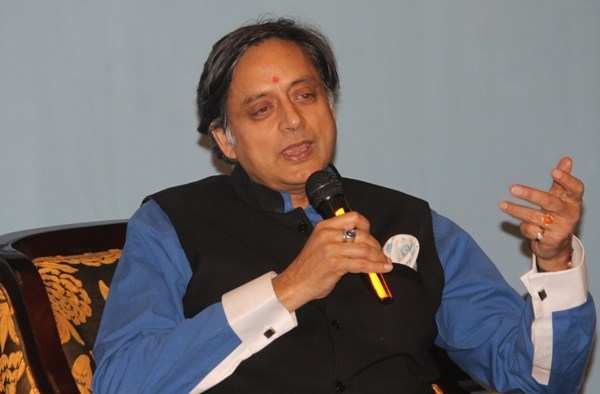
Dr. Tharoor pointed out that Hindu kings such as Shivaji and Rana Pratap had Muslim commanders and fighters in their troupe, while Akbar had someone like Raja Man Singh as his commander. So, while the invaders were focusing on annexing lands, the British were committing organised division through religion – pitting Hindus against the Muslims and lower castes against the upper castes in their policy of divide and rule. The post independence of Hindu Muslim divide for political power, which continues even today, was pioneered (sic) by the English. He also went on to point out that the Shia’a – Sunni divide amongst Muslims was instigated by the British, when in Lucknow, where Moharram was observed equally by Hindu-Muslim community, the British went on to explain that Moharram is a Shia’a concept and the Sunni’s have nothing to do with it. Thereon separate observance and conflict began.
With all of the above and much more elaborated with accuity and immense research in “An Era of Darkness”, what Dr. Shashi Tharoor demanded in his interaction here as with his famous speech in Oxford, is that the current rulers or government of Britain, seek atonement and reparation for the ills demonstrated by their forefathers during their reign of India. He said, cheek in tongue, that if the British even pay One Pound per year for the next 200 years it would be enough reparation.

The event concluded with Shubh Singhvi of Cultural Rendezvous giving the vote of thanks on behalf of Cultural Rendezvous, Prabha Khaitan Foundation and Radisson; to those on the dias, the Chief Guests, the audience and the media.
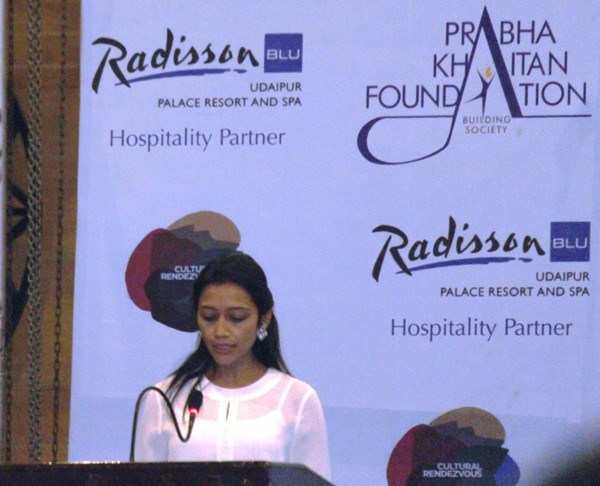
To join us on Facebook Click Here and Subscribe to UdaipurTimes Broadcast channels on GoogleNews | Telegram | Signal


